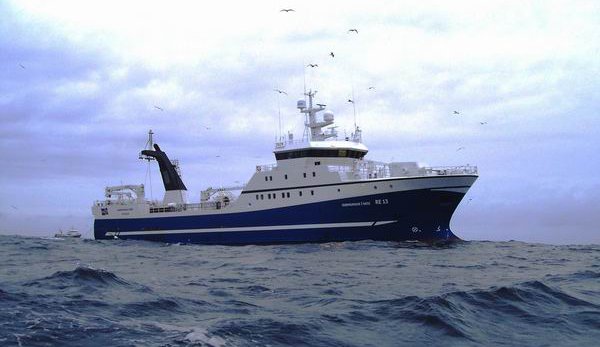Carbon Iceland and the well established fishing fleet operator, Útgerðarfélag Reykjavíkur (www.urseafood.is) have signed an off-take agreement that secures renewable fuel for the whole fleet that Útgerðarfélag Reykjavíkur is operating. This is a partnership to celebrate because Útgerðarfélag Reykjavíkur has been the front leader on the pathway into the future of renewable fuels. Útgerðarfélag Reykjavíkur has already started to modify engines in their ship, Guðmundur í Nesi RE-13 to prepare for the future of renewable fuels for the maritime industry. Carbon Iceland is very pleased to be selected as a partner for Útgerðarfélag Reykjavíkur because both companies share the same vision for the future regarding types of that will be used by the maritime industry. Carbon Iceland therefore assumes to be able to produce all the renewable fuel that will be needed by the fleet that Útgerðarfélag Reykjavíkur will operate for years to come. Another positive aspect of this collaboration between Carbon Iceland and Útgerðarfélag Reykjavíkur is the positive GHG impact that will be benefitial for Iceland. The fuel produced by Carbon Iceland and used by Útgerðarfélag Reykjavíkur will count within the Effort Sharing Regulation (ESR) and therefore, will benefit to Iceland’s climate booking schemes. This will allow Iceland to rely much less on international carbon credits to achieve its carbon neutrality goal, In fact, the production of Carbon Iceland’s renewable fuel can help Iceland to achieve a considerable part of what Iceland’s authorities have agreed and sign to be targets in reduction of emissions before 2030 and 2040.
The ESR is part of a set of policies and measures to reduce the EU’s emissions by at least 55% by 2030 , compared to 1990 levels. This is a crucial milestone to deliver the European Green Deal and achieve climate neutrality by 2050.
Iceland’s collaboration with the EU, its Member States and Norway entails a national target for sectors subject to the EU’s Effort Sharing Regulation (ESR), including road transport, fisheries, agriculture, and waste management. Currently, Iceland’s target under the ESR is a 29% reduction by 2030, compared to 2005, but the target is expected to be increased to around 40% (Nordic Council of Ministers, 2023). Additionally, the government has independently set a target of reducing ESR emissions by at least 55% by 2030, compared to 2005 (Government of Iceland, 2021).
